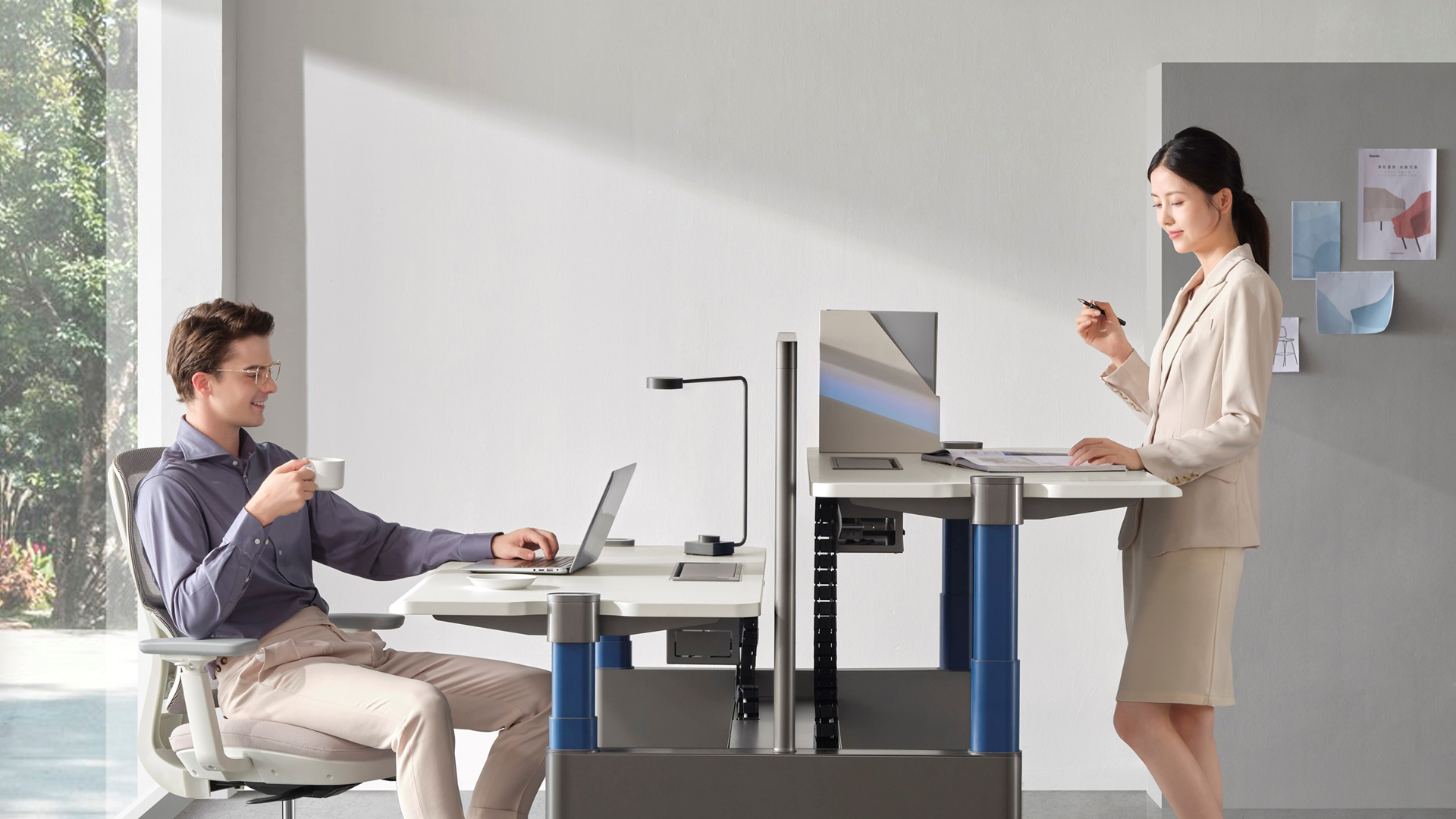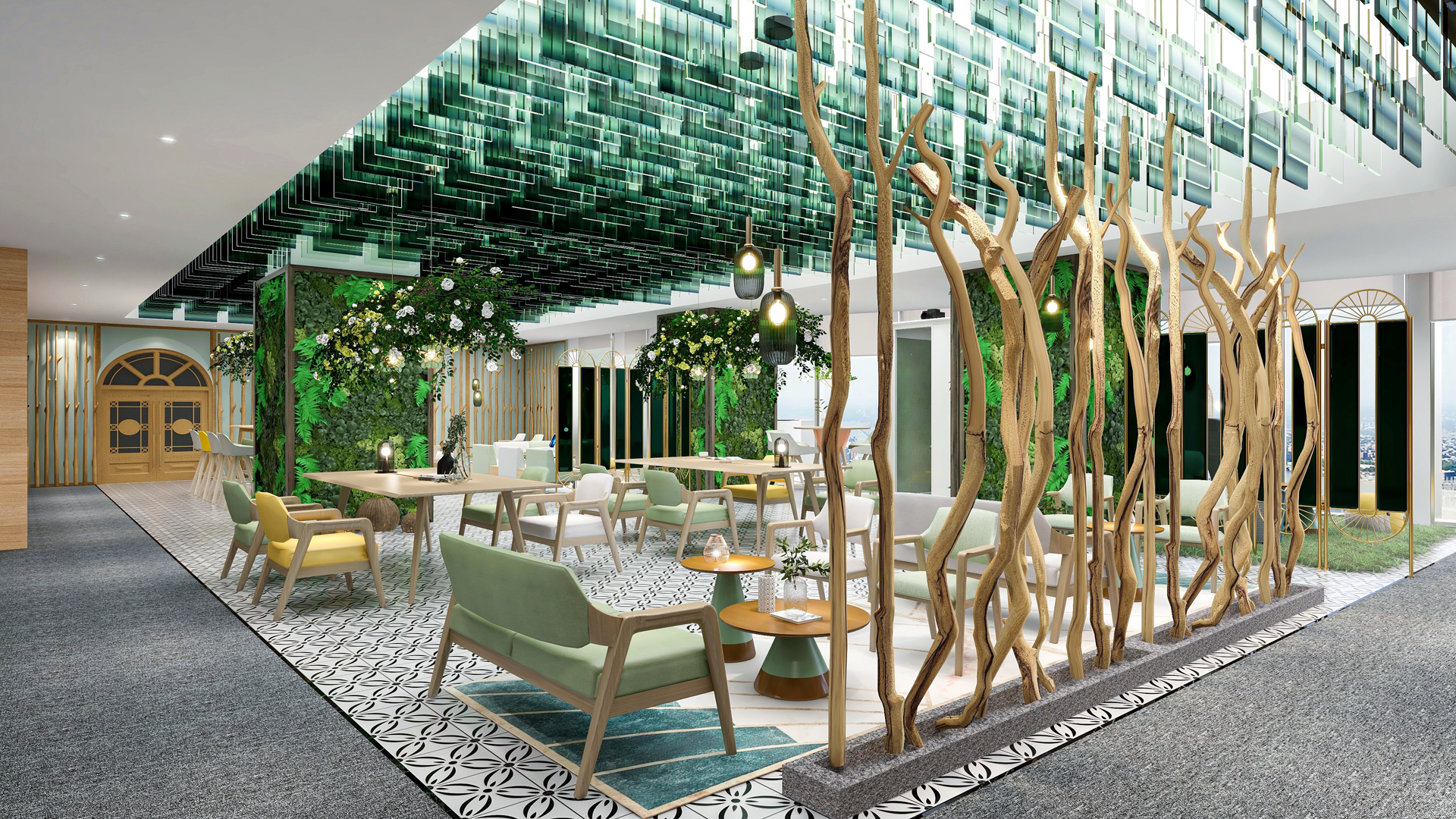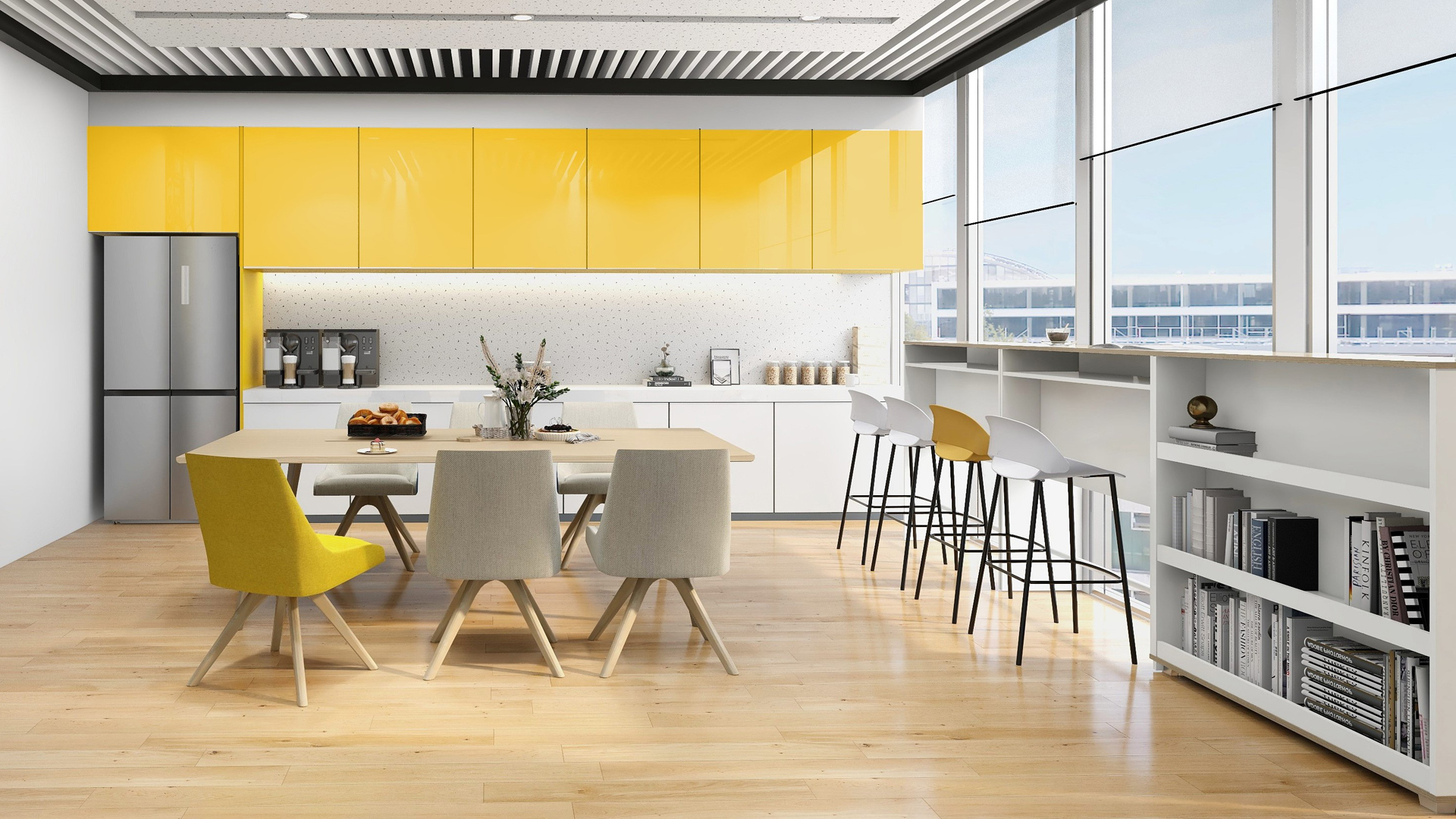
Workers who are unhappy and stressed out cause businesses to lose a lot of money. They may feel more at ease and be happier as a result of a well-designed workplace. Employees that are content are more creative and don't only focus on finishing the work. Employee retention and productivity are increased by happier workers' propensity to be more engaged.
Changes brought forth by experience-based design are feeding employee satisfaction. The cheerful and creative mood and the stressed state coexist at the office. What kind of office then provides these settings for various individuals is the question?

The idea of "unhealthy buildings" refers to spaces with inadequate natural lighting, ventilation, or temperature and inhospitable environments. However, we are discussing five thoughtful ideas to consider in order to increase employee happiness and wellbeing needs that go beyond the common factors like air, light, and temperature.
Feng Shui Principles
Feng shui is a Chinese concept that emphasises the use of energy forces to synchronise people with their surroundings. Feng shui may be used to infuse your office with a lively and productive atmosphere. To establish a tidy, open office environment and to maximise the flow of good energy, create a bright, eye-catching space that makes employees feel welcome. Avoid using furniture with sharp edges and hang motivational, upbeat, and colourful quotations, artwork, or images on the walls.
Biomimcry in the Office
By emulating nature, biomimicry uplifts employees' spirits and offers them sustainable alternatives. We are addressing a basic human desire for a relationship with nature by creating a more natural atmosphere in the workplace. As a consequence, they will feel more confident at work and engaged in routine activities, which will enhance their level of job satisfaction, lower absenteeism, and boost employee retention.

The Danish Approach
The Danish idea of Hygge "is about an environment and an experience, rather than about objects. It’s about being with people we love. A feeling of home," according to its definition. With a sense of familiarity employees will feel supported emotionally and physically by working in a comfortable, happy workplace if certain Hygge-inspired ideas are put into practice.
Make modest spaces that each employee may customise anyway they choose. For employees to take a break and spend time getting to know one another, a breakout area is essential.
Multisensory Experience
An office experience is not just visual. Considerations other than what is immediately apparent must be taken into account while designing a human experience. The senses of sound (background music and acoustics), smell (pleasant fragrances in the air), touch (textures and fabrics of furniture, and even taste (think of creative foods and drinks) may all add to a memorable and satisfying experience. Less tangible characteristics like how a person may emotionally connect with a location and experience happiness and fulfillment are equally important to take into account.

Support Emotional Needs
The level of happiness and stress among all workers at work is influenced by their emotional wellbeing. The most important issue brought on by the open office is arguably the absence of privacy. It is unsettling to not have adequate privacy and to always have people able to see what you are working on. Studies have shown that people don't actually make friends at work and don't feel as connected to their coworkers as they once did. Creating secure areas for individuals to work in and leave their belongings is also necessary. Employee happiness and stress levels are determined by designing the workplace with these factors in mind.